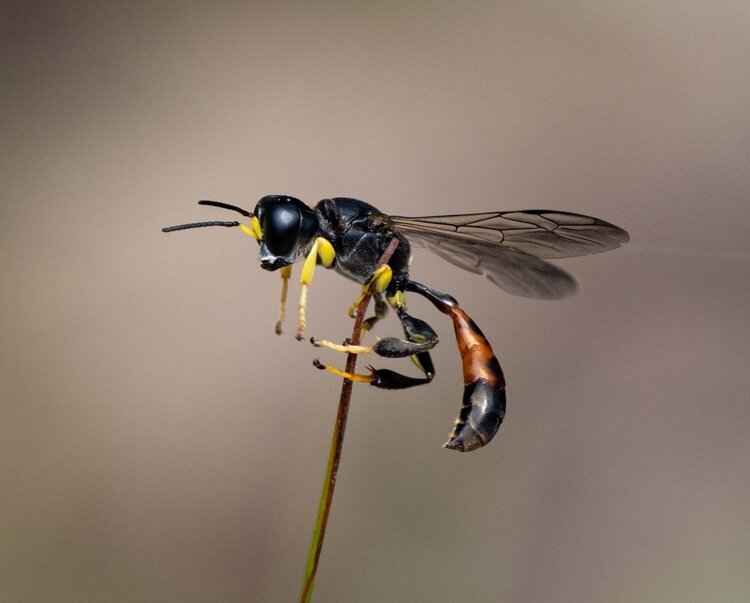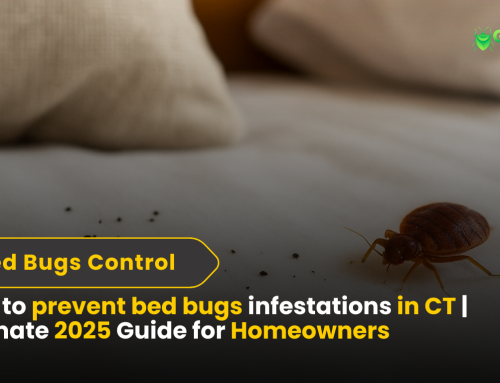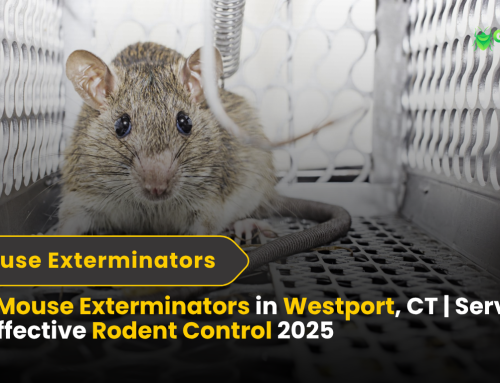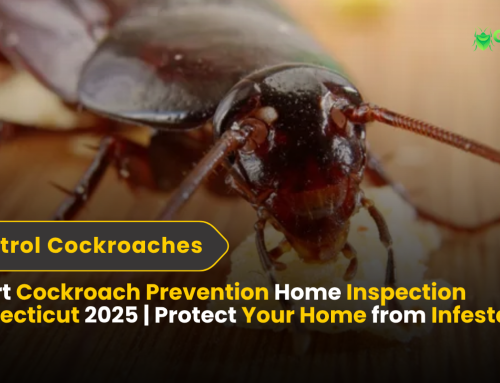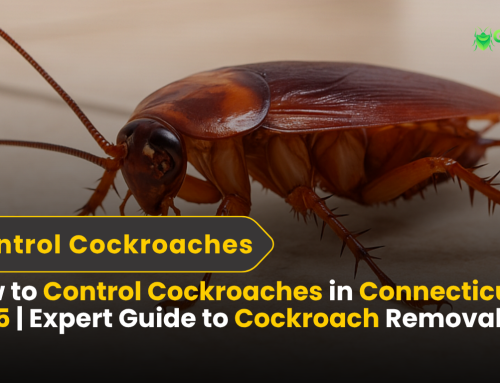How to Choose the Right Wasp Exterminator: Tips and Insights of 2025
Wasp Infestation: Understanding the Problem and How to Handle It
Types Of Wasp In Connecticut
You may come across a variety of wasp species, and knowing which one to use for elimination can help you make the best decision.
Yellow Jackets: These are little, hostile wasps that are frequently encountered in gardens and close to residences.
Paper Wasps: These wasps are less aggressive but can still cause trouble if their nest is disrupted. They are distinguished by their papery nests.
Hornets: More sizable than paper wasps and yellow jackets, hornets can be quite aggressive and deliver exceptionally painful stings.
Mud Daubers: These wasps create recognizable mud nests and are often not aggressive.
Why Choose Exterminate Wasps?
Wasps can present a number of risks.
Health Risks: Wasps can sting several times, which can be fatal for people who are allergic to stings.
Property Damage: Wasps can cause damage to your home by creating nests in attics, walls, and other areas.
Wasps can cause a great deal of disturbance, which can make outdoor activities uncomfortable or even dangerous.
When to Hire a Qualified Pest Controller
Signs of a Wasp Infestation
Wasps can be a serious problem, especially if they establish a nest near your home. Recognizing the early signs of an infestation can help you take action before the situation worsens. Here are some key indicators that you may have a wasp problem:
1. Increased Wasp Activity
If you notice a sudden rise in wasp activity around your home or garden, it’s likely that a nest is nearby. Wasps tend to swarm in specific areas, especially where food sources like flowers, garbage, or sugary substances are present.
2. Visible Nests
One of the clearest signs of an infestation is spotting a wasp nest. Nests are commonly found in trees, under eaves, in sheds, or inside wall cavities. Early detection of a nest can prevent it from growing into a larger problem.
3. Persistent Buzzing Noises
A consistent buzzing sound coming from walls, ceilings, or attics may indicate a hidden wasp nest. Wasps build their nests in concealed areas, making it essential to listen for unusual noises in your home.
4. Expert vs. Do-it-yourself Extermination
Although some people might think about handling a wasp infestation on their own, there are serious risks associated. Do-it-yourself techniques can be risky, particularly if the nest is big or in a difficult-to-reach place. Professional exterminators can safely and successfully control wasp infestations because they have the necessary knowledge, experience, and equipment.
How to Find the Best Wasp Exterminator Near You
Studies and Suggestions
When choosing a wasp exterminator, consider multiple sources for reliable information.
- Internet Reviews: Platforms like Yelp, Google Reviews, and Angie’s List provide insights into local exterminators’ quality and effectiveness.
- Word of Mouth: Ask neighbors, friends, and family for recommendations.
- Professional Associations: Check if the exterminator is a member of organizations like the National Pest Management Association (NPMA).
Crucial Features to Consider
- Experience and Expertise: Choose a company with a proven track record in wasp extermination.
- Licensing and Certification: Ensure the exterminator has the required credentials for pest control services.
- Safety Measures: Ask about precautions taken to protect your family, pets, and property.
- Guarantees and Aftercare: A professional exterminator should offer service guarantees and aftercare if needed.
The Method of Extermination
Initial Inspection
A qualified exterminator will begin with a thorough inspection of your property to locate wasp nests and assess the severity of the infestation. Identifying the specific type of wasp is also crucial in determining the most effective treatment approach.
Treatment Plan
After the inspection, the exterminator will develop a customized treatment plan, which may include:
- Direct Nest Treatment: Spraying pesticides directly onto the nest to eliminate the wasps.
- Dust Applications: Applying pesticide dust in hard-to-reach areas like wall cavities.
- Traps and Baits: Placing traps and bait stations to capture and exterminate wasps.
Safety Measures
Professional exterminators prioritize safety by using certified, eco-friendly chemicals and wearing protective gear. They take necessary precautions to minimize risks to you, your family, and the environment.
Post-Treatment Inspection
After the initial treatment, a follow-up inspection ensures that the infestation has been completely eradicated. The exterminator may also provide recommendations to prevent future wasp problems, such as sealing entry points, removing attractants, and scheduling routine inspections.
How to Stop Wasp Infestations in the Future
Preventive Measures
Taking proactive steps can help prevent wasp infestations and keep your property safe.
- Frequent Inspections: Regularly check your property for early signs of wasp activity to address infestations before they become severe.
- Sealing Entry Points: Close gaps, cracks, and openings in walls, roofs, and other potential entry areas to prevent wasps from nesting inside.
- Yard Maintenance: Keep your garden tidy by removing potential nesting spots, trimming overgrown vegetation, and eliminating food sources that attract wasps.
- Using Wasp Repellents: Consider using artificial wasp nests, as wasps tend to avoid areas where other colonies exist. Natural repellents like peppermint oil can also help deter them.
Frequently Asked Questions (FAQ)
· Why do I have so many flies in my home?
Flies are attracted to food, waste, and organic matter. Common sources include uncovered trash, dirty dishes, pet waste, and overripe or rotting fruits and vegetables. Ensuring proper cleanliness and waste management can significantly reduce the presence of flies.
· How can I prevent flies from entering my home?
To prevent flies from entering your home, install screens on windows and doors, use self-closing doors, and seal any cracks or gaps in walls. Additionally, keep your home clean, store food in sealed containers, and dispose of garbage regularly.
· What are some natural methods to repel flies?
Natural methods to repel flies include using fly-repelling plants like basil, lavender, and marigold, creating vinegar traps, and using essential oils such as eucalyptus, peppermint, and lemongrass. Cucumber slices can also be placed in problem areas to deter flies.
· How do I get rid of a fly infestation?
To get rid of a fly infestation, use sticky traps, fly paper, and UV light traps to capture flies. For severe infestations, consider using fly sprays, residual insecticides, and fly baits. Regular cleaning and proper waste management are essential to prevent future infestations.
· Are flies dangerous to my health?
Yes, flies can be dangerous to your health as they are known carriers of diseases and can contaminate food and surfaces with bacteria and pathogens. Controlling and preventing fly infestations is important to maintain a healthy living environment.
· When should I call a professional pest control service?
If fly infestations persist despite your best efforts at prevention and control, it may be time to call a professional pest control service. Professionals can provide more potent treatments and develop an integrated pest management plan tailored to your home’s specific needs. Regular inspections by a professional can also help prevent future infestations.

